There’s a vast difference between believing in accountability in theory and actually admitting fault in practice. The temptation to shift accountability can be overwhelming when oncoming stakeholders are moments away from fully blaming you for some failure or impactful mistake. It’s definitely a moment that calls for a leader to tap his or her inner hero to rise to the daunting occasion. But, the big payoff of standing on a principle of personal accountability in leadership has long been proven. Let’s consider the enormous consequences of not embracing leadership accountability and the even larger rewards of developing leadership competency in accepting accountability.
On the History of Leaders and Their Failures
All new leaders should be advised from the outset of their leadership careers that failures are inevitable. More importantly, leaders need to understand that failure is a necessary part of the business leadership learning process. Consider great leaders you’ve heard talk freely about their past failures, whether they’re failures of innovative attempts, of well-planned processes integrations, of major new product roll outs, or even of entirely new company launches.
Monumental failures are in the backgrounds of some, if not most of the world’s greatest business leaders. Successful leaders typically reflect on, and credit their failures with indispensable contributions to their knowledge. They will say that those failures and the resilience born from them shaped their futures and enabled their best ideas. They go on to rise up from their admitted failures and move toward their next challenge, with the new wealth of necessary learnings that become the seeds of their greatest achievements to come.
So, the first action item for leaders looking to improve their record of personal accountability is to embrace the potential for failure in everything you do. Recognise that living with the potential for failure is the human condition. It even more profoundly defines the leadership condition, as that is a higher-risk condition, far more fraught with contingencies that can upheave the best laid plans.
Business Consequences of Leaders Not Accepting Accountability
The delicate structure of a workplace culture of accountability can rather quickly deteriorate into a tense atmosphere of mistrust and self-defensiveness, when the organisation’s leader(s) demonstrate(s) unwillingness to maintain the level of leadership accountability that people need in order to be able to rely on them for honesty and fair treatment.
The business consequences of not accepting personal accountability include inadvertently promoting a workplace culture of non-accountability. Failure to accept accountability signals to all, a breach of personal integrity in company leadership. When the leadership integrity proves untrustworthy:
- People on staff who are most inclined to follow suit can be expected to feel free to deny accountability and shift blame for their own mistakes.
- The rest of the team will come to mistrust their situation.
- Ultimately, the most talented employees will defect, seeking a safer work environment.
- Those who stay on for their own reasons learn to keep their heads down and expect anything. These remaining workers naturally learn to expect:
- To see leaders and peers around them unfairly blaming others,
- To see people around them being unfairly blamed, and
- To find themselves being unfairly blamed at some point.
- Even people with the strongest personalities. who try to stay on board, become increasingly stressed by the untenable situation of trying to sustain employment in an unfair, unpredictable workplace. They finally grow weary of coping with its instability, and look for alternative employment. As a result:
- Employee turnover rates grow.
- Product and service quality suffers.
- Production and service processes become less efficient.
- Time and materials waste costs rise.
- Backlog increases.
- Worker frustration levels rise.
- Employee satisfaction levels drop.
- Customer satisfaction inevitably suffers.
- Profit margins ultimately reflect a general deficiency of leadership.

Business Benefits of a Leader Accepting Accountability
A chain of the effects occurs on the thoughts and actions of everyone above and below on the hierarchy of authority, when a leader does, or does not accept accountability. Hence, one’s leadership future in a company and in an industry, and the atmospherics and financial success of a company are all driven by the perceptions of the character of the leader.
When good leaders demonstrate personal accountability, and foster a workplace culture of personal accountability, a wave of positive change sweeps through the organisation.
- Team cohesion becomes stronger.
- A stronger sense of employment security is instilled in workers.
- Mutual trust is increased between workers, between workers and management, between management and external stakeholders, between company and vendors, and ultimately between company and customers.
- Among all the interested parties, confidence in each other and in the company as an institution rises.
- Personal performance pride, and pride in being a part of the company comes to characterise the team.
- Greater pride in belonging to the company and increased support for its success develop.
The natural effects of greater teamwork, stronger sense of employment security, higher levels of trust and confidence in the company, and increased performance pride and company pride all contribute to improved individual and team performance, which altogether leads to:
- Higher rates of employee engagement, satisfaction and retention.
- Improved product and service quality.
- Increased customer satisfaction and retention.
- Increased profit margins.
- Strengthened reputation and brand.
- Increased growth rates.
How to Build a Workplace Culture of Accountability
All stakeholders, including employees, have an important economic interest in the success or failure of the company’s operational systems and processes. People are naturally eager to strive toward milestones that mark their stages of progress toward their goals, goals that include those they share with their team at work. People also always naturally want to do well as part of their social/work group, and they want to feel proud of their own behaviour and their group’s culture. So, developing a workplace culture of accountability is a process, not an impossible dream.
With some encouragement, the average workplace can be elevated to one of exceptional pride in personal and group integrity, where people accept personal accountability as a badge of honour. The Harvard Business Review offers some great advice in ‘Accountable’. Here are some ways to promote this kind of exemplary company culture of accountability:
- Acknowledge how naturally difficult it is for humans to accept accountability, due to the sense of personal risk associated with admitting fault.
- Live an example of personal integrity, including acceptance of accountability.
- Set consistently clear expectations, before work begins on any project.
- Ensure that people are able to meet the expectations you set.
- Obtain acknowledgement of understanding of, and acceptance of your expectations.
- Recognise when it’s time to pass projects on to others, if it is beyond the ability of a struggling employee to succeed in it.
- Model accountability consistently for staff, contractors, and even for your superiors.
- Provide constructive criticism.
- Encourage creative problem solving, and ensure safe risk taking for innovation.
- Express appreciation, and reward accomplishments.
- Give objective feedback, and ask each team member what you can do to help them meet their goals.
- Modify objectives, processes, timelines, and assignments as needed to help ensure success.
- Delegate responsibilities, evaluate outcomes, celebrate successes, and work together with employees on performance issues.
- Empower employees, and make sure they understand that the more control they have over their work, the naturally greater their accountability becomes, and that that’s a good thing.
- Establish attainable benchmarks for progress and quality on tasks and projects, monitor progress, and provide needed coaching.
- Encourage employees to try their ideas for process and quality improvements, without fear of consequences for errors or failures of their improvement efforts.

Challenges in Building a Culture of Accountability
There are workplace conditions created by leadership that can make a sense of personal accountability more difficult for employees to adopt and practice. Under such circumstances, employees may show up and log hours, but try to take as little risk and give as little of themselves as possible.
Entrepreneur magazine addresses some key ways to overcome obstacles to workplace accountability. A sweeping strategy that captures some of those they mention and numerous others is to eliminate the kinds of working conditions that can discourage employees from risking practice of personal accountability. Such conditions include those in which:
- Leaders express anger, frustration or serious disappointment when employees make typical mistakes.
- Leaders become annoyed or impatient when workers ask questions or do not absorb instructions quickly.
- Leaders hand down directives that are not realistic for an individual or team.
- Explanations or instructions are often unclear.
- Leaders behave arrogantly or unkindly toward employees.
- Leaders and or other employees exhibit a lack of commitment to personal accountability.
- Employees have been punished for accepting responsibility for errors or failures.
- Leaders are fickle in setting benchmarks for progress or quality, or changing workers’ goals in mid-project.
Training for Accountability Skill Building
There are innumerable leadership training exercises for developing greater personal accountability in leaders and their employees. As with all successful professional skill-building processes, developing the accountability leadership competency starts with creating a set of skill development goals and exercises. Fortune magazine provides some important ideas to help improve leadership accountability, and here is a broader list of suggested methods to build this skill:
- Contemplate an instance in which you did not accept your rightful accountability for an error or failure. Write down as many reasons as possible that you think may have contributed to your choice to reject your accountability.
- Think about a time when you did accept accountability for an error or failure. Ask yourself what you think helped you feel empowered to take responsibility for that negative outcome.
- Think about the way you talk at home and work and in social situations. Do you seem to have a habit of blaming someone else when a plan goes wrong? Practice balancing your criticisms of others with positive comments.
- Meet with team members whom you’ve discovered failing to accept accountability. Be frank with constructive criticisms. Offer reading, video, workshop, and/or other opportunities as part of a development plan to improve performance in personal accountability.
- List and take action to correct as many of your own former failures to accept accountability as possible. Embrace the cathartic benefits of exercising your strength to admit errors and failures.
- Think about the last time someone you know refused to accept accountability for an error or failure. Think about what you could have said and/or done differently to help them feel more confident in accepting accountability?
- Set standards for all employees of the company to hold themselves and each other accountable and to be supportive in finding ways to help each other correct errors and overcome failures.
- Talk with employees about the consequences to an individual and to the business from not accepting accountability and about the benefits to both of accepting it.
- Give employees feedback, modify expectations as needed, and provide help to overcome issues.
- Get a team commitment to respect each other as professionals by holding each other accountable, and to give each other kindly support and opportunities to make changes as needed.
- Role play accepting accountability for typical errors and failures at work, and practice being supportive when people admit their mistakes. Talk about ways to help each other prevent repeating mistakes.

Personal Accountability Self-Assessment
To help you determine your current level of leadership competency in the area of personal accountability, think about your answers to these questions:
- Can you recall a time when you did not accept accountability at home or work? How old were you the last time you denied accountability? Is it a habit? If so, do you want to overcome it?
- If you have denied rightful accountability in the past, what do you think triggered you to deny your accountability? Fear? Shame? Embarrassment?
- Have you ever been accused of failing to accept accountability at home or work? Do you think it was a fair comment?
Going Forward as a More Accountable Leader
An individual’s resolve to accept accountability can be shaken when confronted with actual blame for a serious mistake or bad outcome. When that moment of truth arrives, bear in mind that pushing accountability off to another party, or making excuses about circumstances disempowers yourself as a leader. It is tantamount to declaring that you are powerless to affect results in the organisation you lead. Accepting accountability asserts a leader’s personal control over the directional changes necessary for the team he or she leads to succeed.
Embracing personal accountability is not only self-empowering, it’s also liberating, freeing you from fear of stretching your skills as a leader and pursuing new ideas and methods that can move your company forward. Further, few acts of leadership carry as much reputational weight with the people around you at every level as accepting accountability when it’s hardest to do.
Accepting accountability is a skill that can be learned, vs. a natural character trait that cannot be intentionally developed? By leadership training, you can learn to model personal accountability and to work through a plan of action to cultivate the value of accountability in team members. A leader’s priority must be to build a workplace culture of accountability, in which inspired employees feel free to risk creative problem solving and process innovation without fear of consequences for failure, and in which mutual trust and support defines the employer brand for the company.





